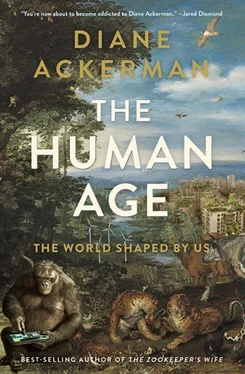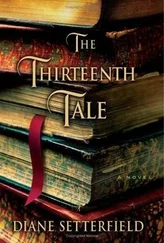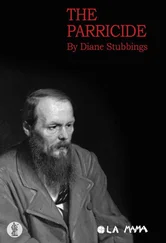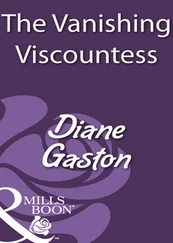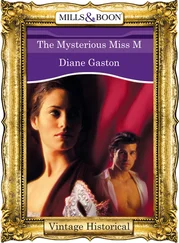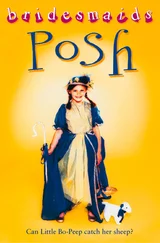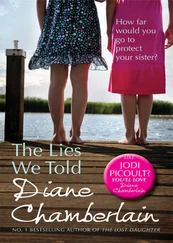We’re but one hotshot species on a planet squiggling with life, and yet we’ve grown powerful enough to befuddle the world’s weather and sour all the oceans. That’s the speed and scale of our influence. On land, humans figure as a geologic agent comparable to the relentless power of erosion or volcanic eruption, and in the oceans, our impact is on par with an asteroid’s. The reef death we’ve caused will be visible in the fossil record. As a point of comparison, the last time reef death happened was sixty-five million years ago, when a real asteroid wiped out the dinosaurs and many other life forms.
Once you’ve glimpsed reef death, you don’t forget its lunar landscape. I’ve always loved scuba diving and the cell-tickling feel of being underwater. Offshore in Jamaica, I once swam through a button collector’s variety of vividly colored fish and was so spellbound that one hand automatically touched my chest and my eyes teared. My guide’s eyes questioned me through the fishbowl of his face mask. There was no way to mime that I wasn’t hurt or frightened, but jubilant, merely glad to the brink of tears. How do you scuba-sign wonder?
Are you in trouble ? he signaled.
No, no , I answered emphatically. I’m okay… My heart is stirred —I put an open palm over my heart, then made a stirring motion in the water— and my eyes … I made a rain-falling movement beside one eye with my fingers.
Surface? he motioned, his knitted brow adding a question mark.
No! I signaled stiffly. I’m okay. Wait. Wait . I thought for a moment, then made the sign French chefs use in commercials, the gestural esperanto for This dish is perfection , making a purse of my fingers and exploding open the purse just after it touched my mouth. Then I swept a hand wide.
Even with the regulator stuffed in his mouth and his eyes distorted behind the faceplate, he made an exaggerated smile, yawning around the mouthpiece so that I could see he was smiling. He nodded his head in a magnified Yes! , then made an Okay sign with one hand and led me deeper, using his compass and surfacing once to check his direction by sighting the boat.
After a ten-minute swim, we suddenly came to a maze of underwater canyons thick with enormous sponges and coral fans, around which schools of circus-colored fish zigzagged. Plump purple sea pens with feathery quills stood in sand inkwells. Tiny tube worms—shaped like Christmas trees, feather dusters, maypole streamers, and parasols—jutted out of the coral heads. Sea relationships are sometimes like those in a Russian novel; a worm enters the larder of a fine, respectable coral to steal its food, and just stays there, unevicted. I moved my palm over a red-and-white-striped parasol, and in a flash it folded up its umbrella and dragged it back inside the coral. A game divers love to play with tube worms. Hocus-pocus and the tube worm vanishes.
On a coral butte just in front of us, a dark gorgonian jutted out between the canyon walls, its medusoid hair straggling in the current. I laughed. That gorgonian’s hair’s like my own , I thought. And then I remembered: We’re mainly saltwater, we carry the ocean inside us . That was the simple, stupefying truth—as a woman, I was a minute ocean, in the dark tropic of whose womb eggs lay coded as roe, floating in the sea that wet-nursed us all. I pulled my mask up and washed my face with saltwater, fitted it back on, and exhaled through my nose to clear it. From then on, I was hooked, and often returned to the sea to reexperience the visible links of that invisible chain.
I was lucky. When I returned to that same spot twenty years later, I found the bare bones of a deserted reef, a moonscape.
There’s no need to travel to the Caribbean to spot climate change’s handiwork—I see it in my New York backyard. Perhaps you do, too, if you take the time to look closely. The looking closely part is essential. For most people, everything may still seem normal, because the seasons come and go in a familiar way, even if one blows in stormier or exits drier than usual. For many of us, the changes are too subtle to notice as we go about our lives.
But clues abound, and not just in my own backyard. Global warming is fiddling with garden thermostats to such an extent that the National Arbor Day Foundation has redrawn the U.S. Hardiness Zone Map—which tells gardeners what and when to plant. For thirty years (as long as the maps have been drawn), Ithaca lay in frostbitten, forget-about-lavender-hued-roses zone 5. Now most of New York State is in the warmer planting zone (6) that used to lie farther south. The “what” and “when” to plant have changed, but not in a predictable way.
A row of ornamental cabbages (always annuals) has begun overwintering and sending up tall stalks of bushy yellow flowers for the first time. No one told the pansies, high summer blossoms, to call it quits in early winter. They keep blooming through snow showers, frost crackles, and quick melts… always with a pensive face. What became of all my Japanese beetles, those polychrome hedonists who used to mate in flesh piles, while eating, atop the roses? I haven’t seen any for three years. But the number of Lyme ticks and other insects has soared. When I first moved to upstate New York decades ago, no Lyme ticks trickled through the grass; the cold climate was too hostile. They usually begin their blood-sucking on the white-footed mouse. Last summer’s prolonged sizzle reduced the acorn crop, a mouse staple, and with fewer mice to hitch rides on and use as all-purpose canteen-nursery-gadabout-vectors for disease, the pesky parasite ticks began hopping aboard more humans. At least that’s how it seemed; people venturing across a meadow inevitably returned with a Lyme tick in tow.
Imagine if you arrived home from work one day to discover that your pet spaniel had morphed into a wolf. You know that dogs evolved from wolves that we domesticated and hybridized… you just didn’t expect to find one gnawing on the sofa leg. Something similar happened in my garden. A favorite yellow Canadian rose bush, well adapted to the cold climate, has been blooming faithfully and true for years. Like many other garden roses, it’s a hybrid produced by grafting domestic and wild strains together. However, last summer, the rose suddenly revealed its lurking Id. To my amazement, from its feral heart it launched flutelike canes of heavily-flowering, tiny white roses. The wild rose ribs sprang from the same trunk as the well-bred yellow tea rose ribs. It was like having Siamese twins, one of which was Neanderthal, the other Homo sapiens .
Heaven knows what it will do this summer. Wild roses are hardier, better adapted to unstable temperatures. Will climate change favor one or the other? Will all of the domesticated roses run wild? A garden is always full of surprises. Last summer, for the first time in the decades I’ve lived here, my yard was a deafening amphibian rave, where hundreds of croaking frogs (especially the drum-eared bullfrogs, whose croak should really belong to a snoring bull, and the smaller banjo-plucking green frogs), bleatingly love-sick, drowned out human conversation. This year all I expect is the unexpected.
Canadian scientists warn of fewer backyard ice-skating rinks and frozen ponds in the future, and in some regions none at all, because of winter’s waning bite. This inspired geographers at Wilfrid Laurier University in Waterloo, Ontario, to found a website to track the effect of a warm climate on Canada’s tradition of thousands of icy flat playgrounds.
“We want outdoor rink lovers across North America and anywhere else in the world to tell us about their rinks,” they urge on RinkWatch.org. [5] The website launched on January 8, 2012, and over six hundred skaters at rinks across the continent began reporting.
“We want you to pin the location of your rink on our map, and then each winter record every day that it’s skateable. We will gather up all the information from all the backyard rinks and use it to track the changes in our climate.”
Читать дальше
